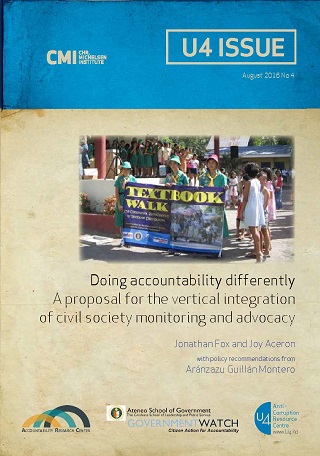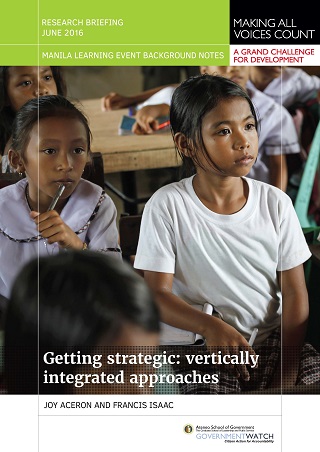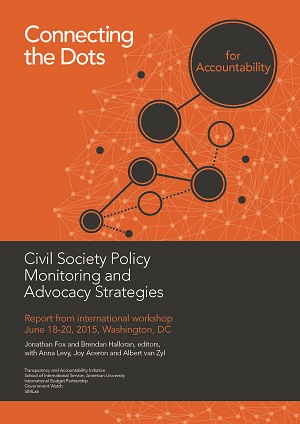Browse our resources covering Vertical Integration Research.
This piece puts forward propositions on "doing accountability differently" through strategies that tackle power and systemic issues in order to address root causes (instead of just the symptoms) of corruption and bad governance through balanced and synergistic, multi-level and multi-actor actions on transparency, participation and accountability.
This provides background paper for a learning event on transforming governance, which presents vertical integration as “an effective way of doing accountability work because it can reveal more clearly where the main problems are, permitting more precisely targeted civil society advocacy strategies.”
In June 2015, a North-South convergence of four organizations hosted a workshop entitled “scaling accountability.” In contrast to the conventional idea of “scaling” as involving the replication of local pilots, our use of the term was intended to convey the idea of going beyond bounded projects to address systemic accountability problems.

 Forward
Forward

